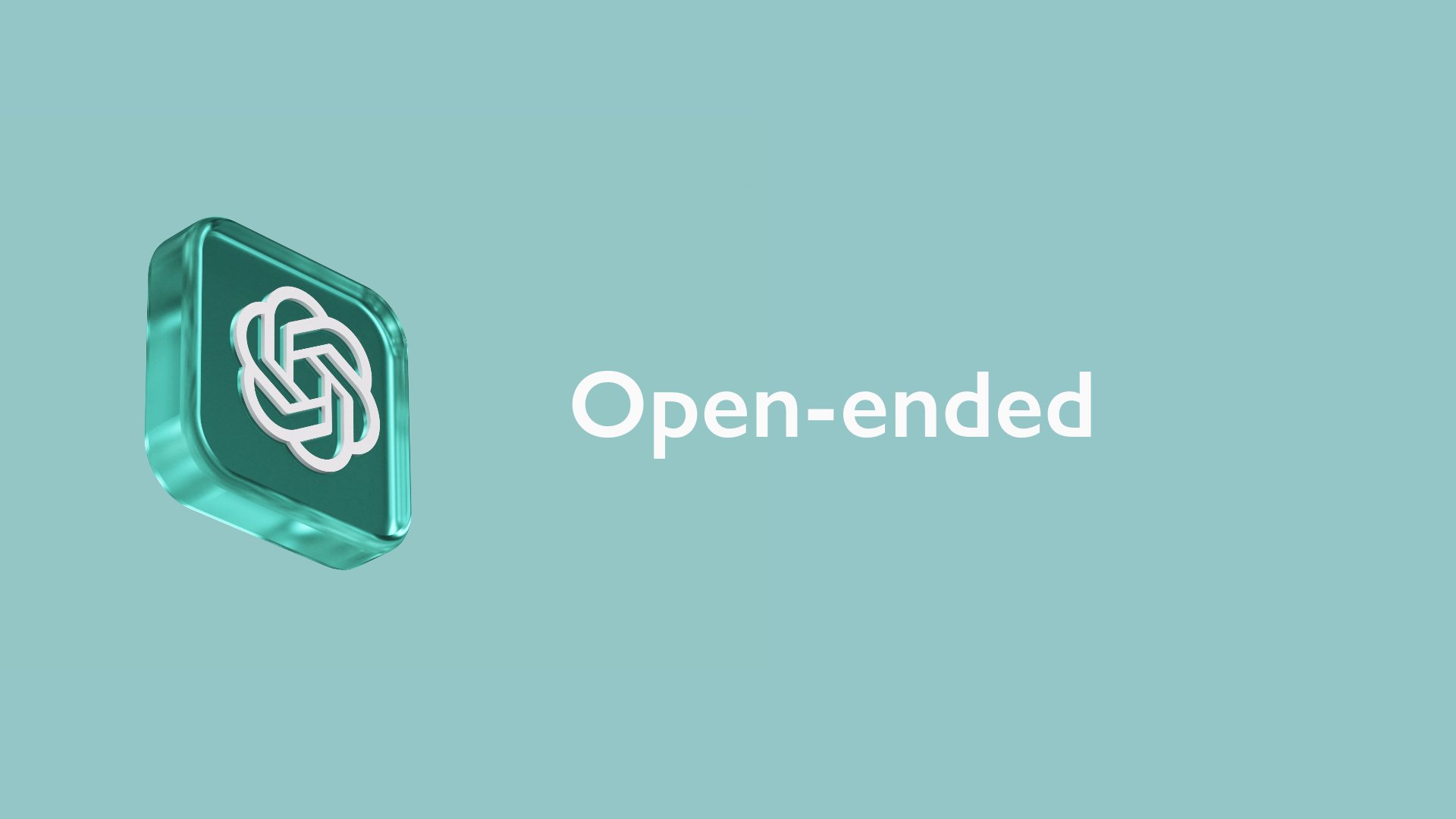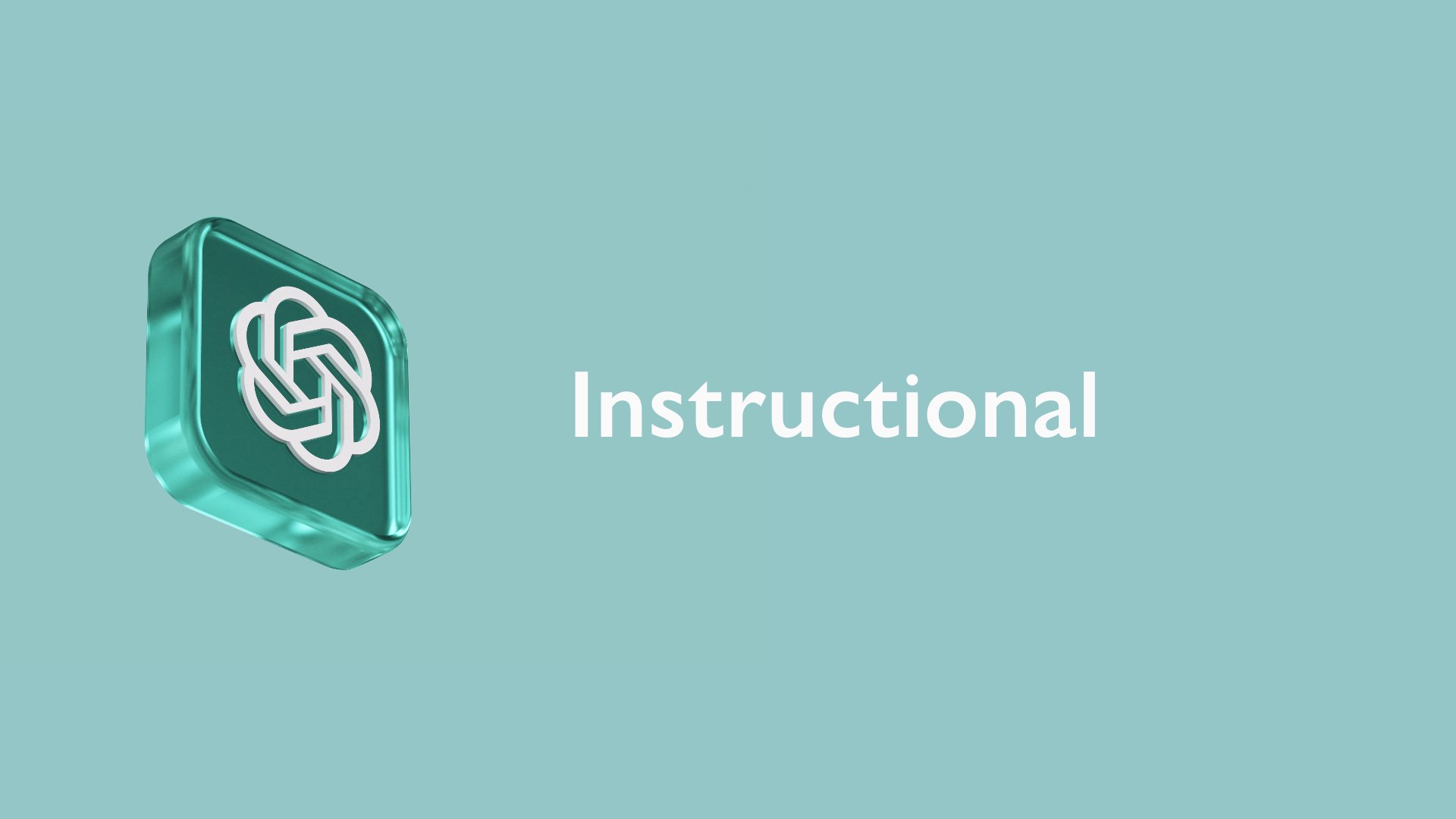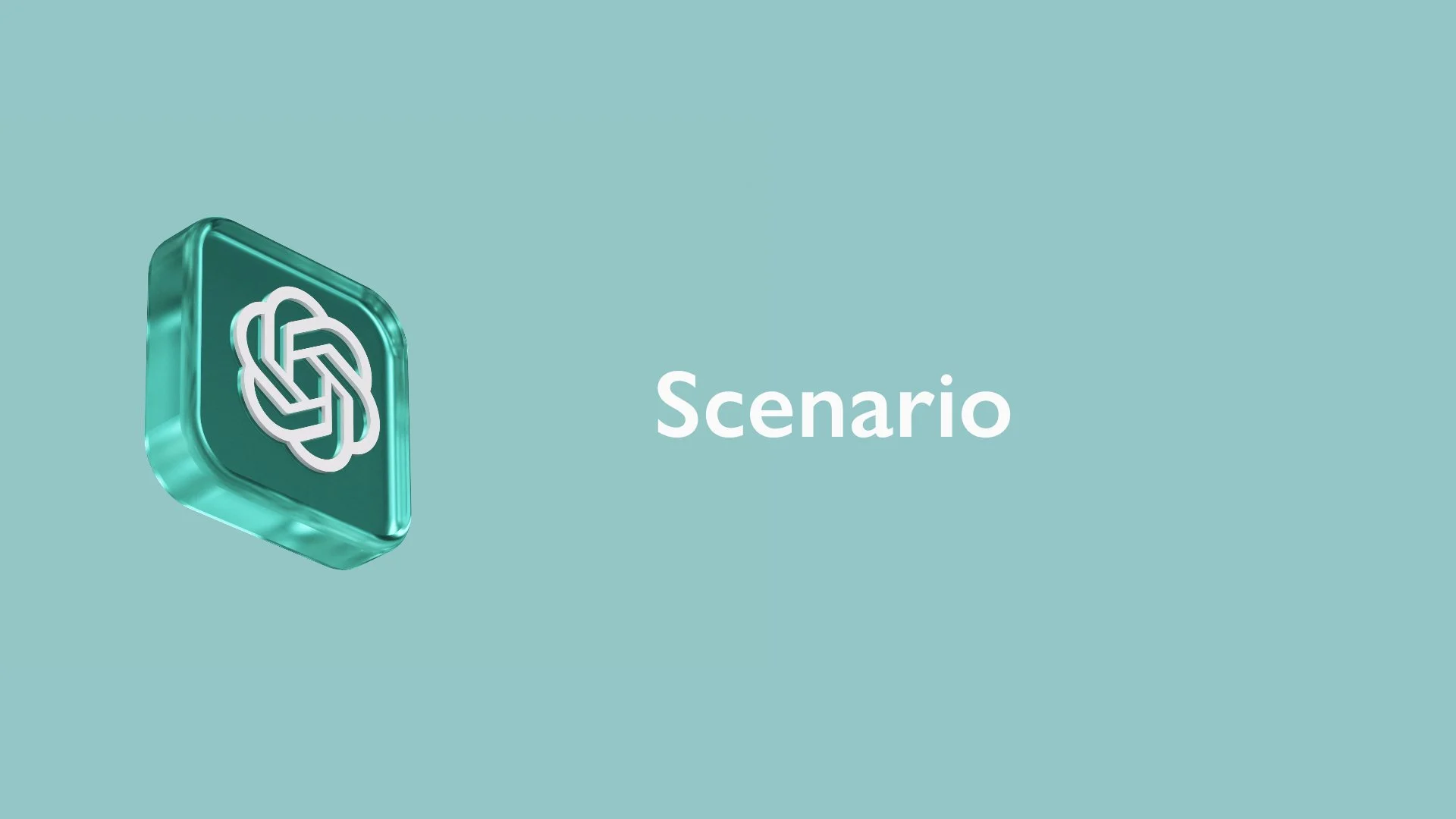25 ChatGPT Examples for Business Owners
With these five ChatGPT prompt types for personal brands and small business owners, you should feel better equipped to engage your audience in meaningful conversations, tackle repetitive administrative tasks, or improve your marketing efforts to help your business stand out.
ChatGPT is an incredibly powerful tool for brands big and small—including personal brands and small business owners—but you know how to put it to work the right way. It can be difficult to come up with creative and engaging ChatGPT prompt ideas, which is why I'm swinging in today with some help.
In this blog post, we’ll explore five of the best ChatGPT prompt ideas for personal brands and small businesses, organized by the five most common types of prompts, including:
With these strategies, you should feel better equipped to engage your audience in meaningful conversations, tackle repetitive administrative tasks, or improve your marketing efforts to help your business stand out. So, let’s get started.
What is ChatGPT and How Can It Benefit Your Small Business?
ChatGPT is a state-of-the-art language model developed by OpenAI that is trained to generate human-like text based on the given prompts. It uses deep learning algorithms to understand and respond to natural language inputs, making it an invaluable tool for small business owners.
With ChatGPT, personal brands and small business owners can do many things—researching topics for content creation, writing sales page copy, or brainstorming catchy email subject lines, just to name a few. It can even be used to automate customer support, provide personalized recommendations, and other big tasks at scale. The goal is to learn how to use this tool to save time and resources, while still delivering a personalized brand experience for your community and audience.
I should note that ChatGPT can’t do everything—namely, it can’t hold your opinion, or provide absolutely updated information (although that’s set to change soon). I’ve not personally encountered a situation where I can generate a result on ChatGPT without required editing, or at least peppering in my opinion to keep the final result interesting and relatable (like this blog post).
I do like that ChatGPT can be easily integrated into existing systems and platforms, allowing small business owners to leverage its capabilities without extensive technical knowledge. You just need the right prompts for the task.
By using ChatGPT correctly, small business owners can also gain valuable insights into customer preferences and behaviors. The model can analyze large amounts of customer data, such as chat transcripts and feedback, to identify trends and patterns. This information can be used to improve one’s products and services, enhance brand and customer satisfaction, and even drive business growth.
I do like that ChatGPT can be easily integrated into existing systems and platforms, allowing small business owners to leverage its capabilities without extensive technical knowledge. You just need the right prompts for the task.
Crafting effective prompts is crucial for getting the most out of ChatGPT and creating engaging conversations with your customers. Here are some tips to help you craft effective prompts:
1. Be clear and specific
When creating prompts, provide clear instructions and specify the desired outcome. Clearly define what you want ChatGPT to accomplish or the information you need from your customers. This will help ChatGPT generate more relevant and useful responses.
2. Use natural language
Write prompts in a conversational and natural tone. Avoid using technical jargon or complex language that may confuse ChatGPT or your customers. Keep the prompts simple, concise, and easy to understand.
3. Test and iterate
Don't be afraid to test different prompt ideas and iterate based on the results. Analyze the responses generated by ChatGPT and make adjustments as needed to improve the quality and effectiveness of the prompts. Continuous testing and optimization will help you refine your prompts over time and create more engaging conversations.
Fill-in-the-blank prompts allow you to gather specific information from your customers while also making the conversation more interactive.
#1. Fill-in-the-blank ChatGPT prompt ideas
Fill-in-the-blank prompts offer a structured approach, but for optimal results, you need to be clear what you're asking for. Ideally, you include as much detail as possible in your prompts, providing context and explicit information to guide ChatGPT toward generating the most relevant recommendations. That can be as easy as providing your type of company or competitor names, for example.
Here are five fill-in-the-blank ChatGPT prompts to try:
Provide 20 examples of open-ended questions to include in a customer survey for [company type].
Here are the names of my top competitors in [industry]: [competitor 1], [competitor 2], and [competitor 3]. Generate an analysis of their strengths, weaknesses, and market position.
Here is a sales email I have written [insert the email or describe the email]. Come up with a subject line that's [adjective] and [adjective].
What can be the steps of an online funnel that sells a [price point] [type of product] for [niche]?
Describe how can I sell [product] using an online funnel.
Generally, the more specific information you tell ChatGPT, the richer the result it will provide; however, there’s no harm in starting with one that’s general and continuing to iterate until you’re happy with the outcome.
#2. Open-ended ChatGPT prompt ideas
Open-ended prompts allow individuals to explore thoughts and creativity without limitations. They work well for brainstorming or thinking outside the box, for example. These prompts can spark curiosity and allow for deep reflection, leading to new perspectives and fresh insights.
Here are some open-ended ChatGPT examples that you can try to get some ideas flowing:
Can you suggest a persuasive call-to-action for my sales page that encourages visitors to purchase my online course?
I need a clear and effective call-to-action for my YouTube video that encourages viewers to subscribe to my channel.
I'm launching a new podcast and I need a catchy call-to-action for my intro that encourages listeners to tune in for future episodes.
Can you suggest some unique and eye-catching images that could grab the attention of my target audience?
How can I use color psychology to create a brand that resonates with my target audience and drives conversions?
Open-ended prompts likely won’t give you actionable next steps, but that’s not what they’re intended for. Instead, treat open-ended prompts like a friend you’d chat with to brainstorm or come up with new ideas.
Brand Therapy
196. Are AI marketing tools worth the hype? (f. Kate Scott)
Overwhelmed by new AI tools and not sure where to start? 🤖 This episode of Brand Therapy is the perfect place to begin. Our expert guest cohost Kate Scott (filling in for Lauren) is a Squarespace template designer and online educator who will share her research and findings on the best AI tools (as well as the flops).
#3. Instructional ChatGPT prompt ideas
Creating effective instructional ChatGPT prompts involves carefully crafting clear instructions that specify the desired task, context, and outcome. These prompts are used for precise tasks like generating code, transcriptions, and more.
Here are some examples of instructional prompts:
What would be a good message to welcome a new hire to [company details] team and provide them with a brief overview of our company culture, values, and goals?
What are the steps to prepare for my personal brand photo shoot?
What steps should I follow to do effective cold outreach?
Can you explain an online funnel to sell [type of product] in simple terms?
Can you provide me with three examples of online funnels that are well-suited for selling a [product] to [niche]?
Open-ended prompts likely won’t give you actionable next steps, but that’s not what they’re intended for. Instead, treat open-ended prompts like a friend you’d chat with to brainstorm or come up with new ideas.
#4. Scenario ChatGPT prompt ideas
Scenario prompts provide a contextual scenario to ChatGPT, which it will reply with a proposed solution. These prompts can serve as a tool for solving problems in a wide range of business-related scenarios by delving into hypothetical situations.
Here are some examples of scenario prompts that may help you envision yourself in these types of situations, and how you’d handle them:
What would you do if a customer complained about [issue]?
How would you handle a situation where [problem] arose?
Imagine you're pitching an investor for a new mobile app that helps people save money on hotel bookings. Explain the problem the app solves and the target audience for the app.
What would you do if a customer wanted a refund for [product/service]?
Propose innovative solutions or features that could be added to [project], considering both functionality and user experience.
Scenario prompts are designed to provide necessary information, context, or constraints, so that the AI can ideally produce a relevant and accurate output.
#5. Feedback ChatGPT prompt ideas
Feedback prompts are straightforward—they require ChatGPT to provide feedback or suggestions on a product, service, or idea. Remember, ChatGPT can’t reference external links at the moment, so if you want feedback on something specific, you’re best to paste it directly into ChatGPT.
Here are some prompts to try if you’re looking for feedback on something:
What feedback do you have for my [website/marketing campaign]?
Do you have any suggestions for improving [product/service]
How can you measure the growth and health of your online community, and what strategies can you employ to continuously improve and evolve your community-building efforts based on community feedback and insights?
Brand statement: [brand statement]
Give me feedback on my brand statement by evaluating its clarity, conciseness, and overall effectiveness.
I need a response to a customer who has provided feedback on our product/service and has some suggestions for improvement. Can you write a professional reply?
Feedback prompts are some of my favorite ChatGPT examples in the context of personal branding. Of course, asking for an expert’s feedback is always best, but this is a wonderful interim solution if you need some quick ideas.
Final thoughts
By using the right ChatGPT prompts, you can make incredible strides within your business. Whether you choose fill-in-the-blank prompts, open-ended prompts, instructional prompts, scenario prompts, or feedback prompts, the key is to be clear, detailed, and open to refining your prompts. Experiment with different prompts, analyze the responses, and continually iterate to get the best result.
Which prompts are you going to try? Let me know in the comments.










